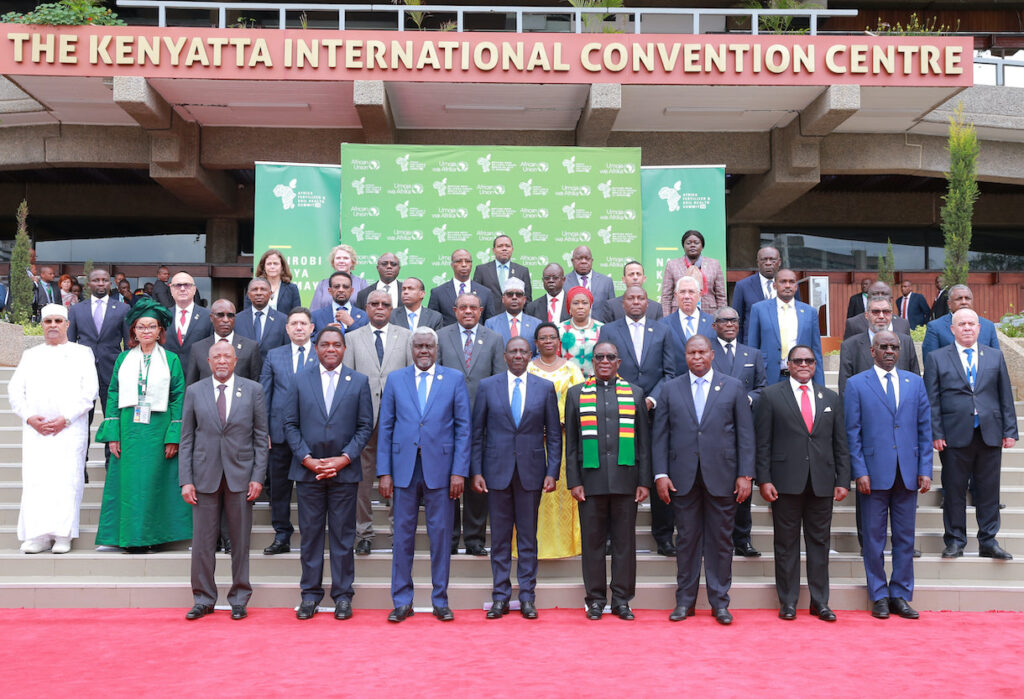Like millions of other Kenyans, my parents are smallholder farmers. According to the Food and Agriculture Organization (FAO), there are 33 million smallholder farms across Africa, contributing up to 90% of food production in some sub-Saharan African countries. Yet, smallholders account for nine out of ten people living in poverty in sub-Saharan Africa.
These troubling statistics were at the forefront of my mind during the recently concluded Africa Fertilizer and Soil Health Summit in Nairobi. Ironically, the important summit unfolded alongside Kenya’s controversial fake fertilizer scandal. Infact, our Agriculture Cabinet Secretary was notably absent from the sessions as he was extremely busy defending himself before a parliamentary committee investigating the scandal. After numerous sessions, it became clear that agribusiness could transform farming in Africa into a sustainable livelihood for millions. The summit provided a clear roadmap to significantly enhance agribusiness across the continent, promising food security and economic prosperity. But how exactly can we make this a reality?
Firstly, as African nations, we aim to triple the production and distribution of both organic and inorganic fertilizers by 2034. By focusing on local production, we reduce our dependency on international markets, making affordable inputs available to smallholder farmers. This stabilizes our agricultural base and creates opportunities for local employment and innovation.
Secondly, reversing degradation on 30% of our lands will involve employing integrated soil and water conservation techniques. This critical step not only enhances productivity but also aligns with environmental conservation efforts and bolsters our resilience against climate change, ensuring sustainable agricultural practices.
Thirdly, solid financial backing and supportive policies are essential. The Africa Fertilizer Financing Mechanism will enhance the infrastructure needed to meet our fertilizer production goals, while policy harmonization ensures these ambitious targets are met efficiently.
Fourthly, although not highlighted in the summit’s recommendations, strengthening biosecurity measures by strictly monitoring imports, especially of used vehicles and equipment, is crucial. The International Standards for Phytosanitary Measures (ISPM 41) was established to manage the risks associated with these imports, requiring stringent cleaning and treatment to prevent the introduction of pests. Adhering to ISPM 41 is essential for protecting our crops and soils, ensuring the longevity and efficacy of our agricultural efforts.
Fifth, engaging the youth in agribusiness not only taps into their reservoir of innovation and energy but also cultivates a future adept in modern agricultural practices. By channeling educational and financial resources toward young farmers and ecopreneurs, we empower a generation poised to navigate and excel in the complexities of soil science and fertilizer management. Intriguingly, with over 60% of Africa’s population under 25 and agriculture accounting for 23% of sub-Saharan Africa’s GDP, harnessing this demographic’s potential could significantly drive economic growth and innovation in agriculture. This strategic focus is vital for transforming agribusiness into a field that is both lucrative and sustainable, appealing to the entrepreneurial spirit of young Africans.
Innovative financing is crucial for equipping Africa’s food systems to effectively address future challenges like rapid population growth and climate change. These strategies are key to adaptation efforts. Moreover, the African Development Bank forecasts that Africa’s agribusiness sector, driven by local innovations and investments, could reach US$1 trillion by 2030.
Our strategy calls for unity among government officials, private sector leaders, and farming communities. By working together, we aim to transform the ambitious goals of the Nairobi Declaration into real benefits for everyone.
Every Kenyan and African must engage as we progress. United, we can ground our economic growth in agribusiness. It’s time to act boldly, setting the stage for a prosperous agricultural future.
The Nairobi Declaration on Africa Fertilizer and Soil Health Summit in Nairobi endorsed by various heads of state provides a solid foundation for building a strong, agribusiness-led economy. Let’s seize this opportunity to turn plans into action and transform our agricultural landscape into a thriving reality across the continent. Above all integrity must be our guiding star. Twende kazi! Think green, act green!



